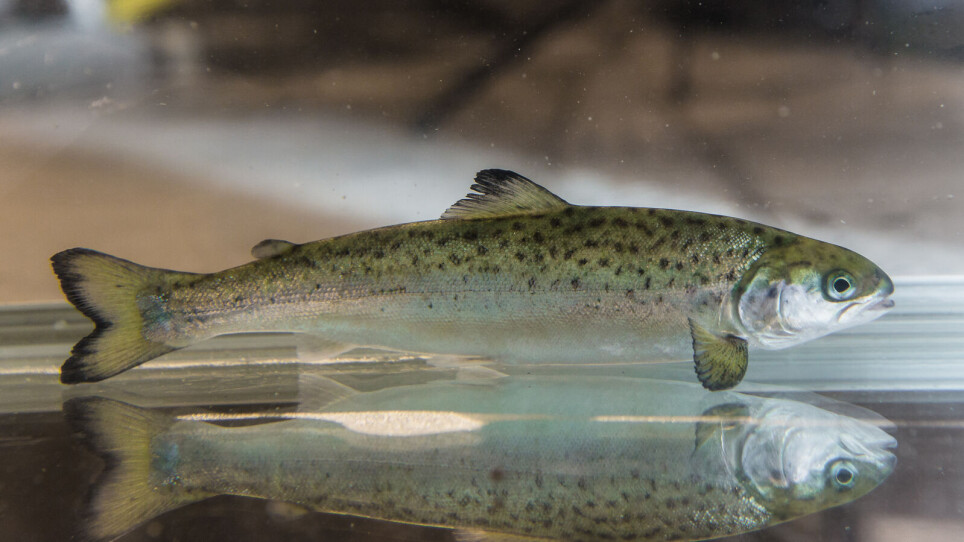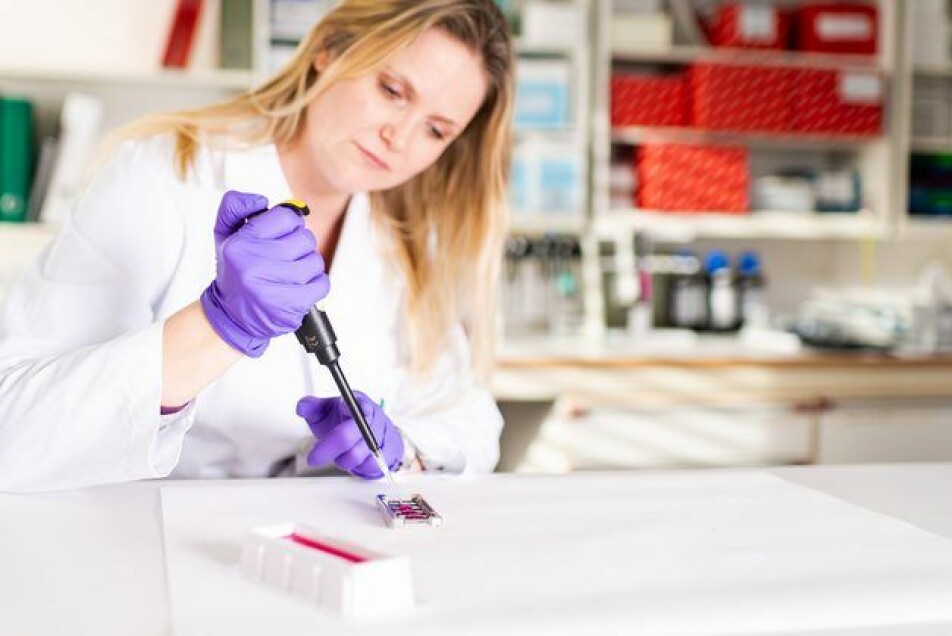THIS ARTICLE/PRESS RELEASE IS PAID FOR AND PRESENTED BY Nofima The Norwegian Institute of Food, Fisheries and Aquaculture Research - read more

Scientists have developed a health test for salmon smolt
Salmon that have to adapt from a life in fresh water to a life in seawater need a robust immune system in order to make the transition.
Nofima scientists have now developed a test that measures the immune status of salmon smolt. The test can provide information that fish farmers will benefit from when transferring salmon to the sea.
The results can help increase the chance of survival. Every year, approximately 15 per cent of farmed salmon die after being transferred from land-based freshwater tanks to net-pens at sea. Most of these fish die shortly after being transferred.

What is the test?
It is a diagnostic test that measures the activity of 44 genes that are important for the immune system. A sample is taken from the gills or the dorsal fin without harming the fish.
“A few years ago, we found that the immune system was weakened during smoltification. As a result, we decided to develop a test to measure the immune status of salmon during smoltification,” says Aleksei Krasnov, senior scientist at Nofima.
In order to do that, Krasnov and his colleagues evaluated many genes and selected those that provided the most information about immune status. The scientists compiled large amounts of data from many different experiments performed in Nofima.
Krasnov is not aware that anyone else has such a large and well-organised database of gene expression for salmon. The activity of the selected genes was analysed on salmon from various fish farming sites, different groups of fish, and different environmental conditions. The scientists used this data to develop a database that provided the basis for the diagnostics of the immune status.
Gene activity reveals the body’s plan
The genes give ‘orders’ to the body’s cells to produce proteins that have a given function.
Genes may increase or decrease activity long before we can see changes in fish condition. Scientists measure activity of carefully selected genes for assessment of salmon immune status and health.
The scientists have found the normal activity level for each of the 44 genes in a fish of good condition. If the activity level is too high or too low, it may indicate poor immune status. This means that they can now offer tests for immune status in salmon smolt.
“We are able to see which fish are in good condition and which are not. In addition, we know which fish seem healthy, but in reality are not,” Krasnov says.
Industry representative, Dr Gordon Ritchie, who is Group Manager Fish Health & Welfare in Mowi ASA, is co-author on the latest article.
“The successful development of this novel technique provides companies with a new tool in the smolt quality assessment box, for verifying the immune competency and robustness of smolt before transfer to sea. This immune status diagnostic tool can also be utilised in future research projects on smolt performance and survival,” Ritchie comments.

Useful in other projects
Krasnov also sees the benefits of using the test in other research projects.
“We used the test in the CtrlAQUA research centre to test whether different ways of producing large smolt in closed recirculation facilities affect immune status before transfer to sea takes place. The test showed that immune status was the same for the different production methods. We also use the test in projects where the nutrition scientists investigate whether feed ingredients affect fish health," Krasnov says.
Reference:
Lund et al. Evaluation of Immune Status in Two Cohorts of Atlantic Salmon Raised in Different Aquaculture Systems (Case Study), Genes, vol. 13, 2022. DOI: 10.3390/genes13050736

This article/press release is paid for and presented by Nofima The Norwegian Institute of Food, Fisheries and Aquaculture Research
This content is created by Nofima's communication staff, who use this platform to communicate science and share results from research with the public. Nofima is one of more than 80 owners of ScienceNorway.no. Read more here.
See more content from Nofima:
-
Red algae grown in wastewater from fish-farming facilities could become sustainable salmon feed
-
Pumpkins are good for more than just Halloween decorations
-
This is how temperature affects a salmon's health and growth
-
Study: Omega-3 and zinc is a powerful duo for salmon
-
Fish may turn yellow if frozen too fresh
-
Is it better if food is packaged in plastic or paperboard?




































